40 why food labels are required on some foods
Factual Food Labels: A History of Food Labels - University of Texas at ... A few decades later in 1990, the FDA, through the Nutrition Labeling and Education Act, mandated that all food companies were required to make consistent claims and include a detailed, standardized nutrition facts panel on all products intended to be sold. This panel would include information such as the amount of calories, fat, cholesterol ... Does all food need a label? - Safe Food & Water The answer is yes. The Food and Drug Administration (FDA), the branch of government responsible for helping keep our food safe, provides regulations and guidance on food labeling. Food items that are allowed to be made and sold from one's home without a license are called cottage foods. These foods fall under the Michigan Cottage Food Law.
Food labels and the lies they tell us about grocery store ... Jul 08, 2021 · Salami and cheese and pickles and sauerkraut and all kinds of food come from the natural process of aging — “in most cuisines of the world, there’s not as great a distinction between new ...

Why food labels are required on some foods
Food Labeling & Nutrition | FDA Food labeling is required for most prepared foods, such as breads, cereals, canned and frozen foods, snacks, desserts, drinks, etc. Nutrition labeling for raw produce (fruits and vegetables) and ... Why Is Reading Food Labels Important? | livestrong All packaged foods come with a nutrition label meant to provide you with the information necessary to know exactly what you're eating. Understanding what's in the foods you eat helps you make healthier choices. Checking food labels also makes it easy for you to compare the nutrient content of different options. FDA Regulation of Cannabis and Cannabis-Derived Products ... In addition, under 21 CFR 530.20(b)(2), if scientific information on the human food safety aspect of the use of the approved human drug in food-producing animals is not available, the veterinarian ...
Why food labels are required on some foods. Food labels - Better Health Channel Reduced fat or salt - should be at least a 25% reduction from the original product. Low fat - must contain less than 3% fat for solid foods (1.5% for liquid foods). Fat free - must be less than 0.15% fat. Percentage of fat - remember 80% fat free is the same as 20% fat, which is a large amount. Packaging and labelling | Food Standards Agency Some foods are exempt from the need to display an ingredient list, for example: fresh fruit and vegetables, carbonated water and foods consisting of a single ingredient etc. For further information about the legal requirements that apply to naming the food and listing ingredients, please visit our Food Information Regulations 2014 summary guidance. Pet Food Labels - General | FDA Canned foods typically contain 75-78% moisture, whereas dry foods contain only 10-12% moisture. To make meaningful comparisons of nutrient levels between a canned and dry product, they should be ... Top Reasons Why Having Food Labels is Important | Sticky Biz Offering helpful information on your food labels gives consumers confidence in using your product, especially when it comes to cooking instructions as this gets the best flavor from the food and helps them avoid sickness. We have product specialists ready to help you at 562-945-3486. Flexographic Printing. Custom printed tape. Stock printed tapes.
Why Read Food Labels | Universal Health Products What are food labels. Food labels, also known as Nutrition facts labels are labels required on most packaged foods showing what nutrients are contained in the food within the package. They are used in many countries. Usually found on a panel found on a package of food, they contain a variety of information regarding the nutritional value of the food. Why are some foods required to have nutrition information labels and ... Answer (1 of 28): Within the US, the FDA has the ultimate authority in determining which foods must have nutrition and ingredient labeling and which do not. There is a 117-page labeling guide that can help to be more specific in regard to labeling requirements and this is available from the USDA,... GMO Foods Should be Labeled, But Not for Safety: Bioethicist - NBC News Absolutely yes. But, not for the reason that is dividing Americans over GMOs. The New York Times reports that the giants of the food industry are deeply split over the labeling issue. Monsanto and ... Are food labels required on all foods? [2022] | QAQooking.wiki Why do some foods not have food labels? Foods that do not contain significant amounts of nutrients. For example, coffee, tea and some spices. Foods produced by businesses that meet certain criteria (business size, annual sales) may be exempt from nutrition labeling unless they make a health claim or nutrient content claim.
Food Labels | Nutrition.gov Food labels can help you make healthy choices when buying food in grocery stores or restaurants. ... Learn about organic foods, requirements, and how they are labeled. ... has updated the Nutrition Facts label on packaged foods and beverages with a fresh design that will make it easier for you to make informed food choices that contribute to ... Academic Journals | American Marketing Association Journal of Interactive Marketing aims to identify issues and frame ideas associated with the rapidly expanding field of interactive marketing, which includes both online and offline topics related to the analysis, targeting, and service of individual customers. Why is food labelling needed? - Quora Answer (1 of 11): It's important to know what you're eating. If you eat only fresh, naturally raised and grown meat, fruits, and vegetables, labeling is not be needed. Real food doesn't have ingredients, it is ingredients. The USDA Organic label is a faint guarantee against some poisons being use... Six reasons why food labelling is important Here are six reasons why food labelling is important: 1. Keep healthy - Labels help you to understand the composition of your food: its vitamins, minerals, calories, fats, etc. This information is fundamental in ensuring that you are eating the kinds of food that are good for you. With labels, you can monitor your intake of micronutrients to ...
13 Misleading Food Label Claims and How Not to Be Tricked - Sentient Media 1. Label Says "Sugar-Free". The Food and Drug Administration (FDA) provides guidelines for a variety of common food labels, including sugar-free. While the term suggests that products labeled this way would be completely free of sugar, they can actually contain up to 0.5 grams of sugar in a single serving size.
What are the Requirements for a Food Label? - Short Food Labeling Guide Required Food Label Information. The FDA requires seven areas of information on food labels for legal sale of these goods. These items include the following information about the food product. All labeling must be in English, though some foreign language is appropriate so long as the English translation is also present.
Gluten and Food Labeling | FDA - U.S. Food and Drug Administration Whether a food is manufactured to be free of gluten or by nature is free of gluten, it may bear a "gluten-free" labeling claim if it meets all FDA requirements for a gluten-free food. Some ...
The Importance of Food Labels | Requirements for Packaging Importance of Food Labels. Food labels are a legal requirement and they are important for many reasons. They help consumers make informed choices about the food they buy, help them to store and use it safely and allows people to plan when they will consume it - all of which help to reduce food wastage. The rest of this article will explain ...
Why is organic food more expensive than conventional food? Production costs for organic foods are typically higher because of greater labour inputs per unit of output and because greater diversity of enterprises means economies of scale cannot be achieved; Post-harvest handling of relatively small quantities of organic foods results in higher costs because of the mandatory segregation of organic and ...
What is required on a food label? - USDA A meat and poultry label is required to contain 8 features. These are: the product name, inspection legend and est. number, handling statement, net weight statement, ingredients statement, address line, nutrition facts, and.
Genetically modified food controversies - Wikipedia Connecticut and Maine had passed laws in 2013 and 2014 respectively, which would have required GMO food labels if Northeast states with a population of at least 20 million had passed similar laws (and for Connecticut, representing at least four states). Other jurisdictions make such labeling voluntary or have had plans to require labeling.
Should GMO foods be labeled? - News In the ongoing debate about whether or not genetically modified foods should be labeled, some maintain that consumers should have the right to know all about what's in their food. Others insist there's no evidence that such foods harm health and that labeling isn't necessary. The controversy about GMOs, or genetically modified organisms ...
FDA Regulation of Cannabis and Cannabis-Derived Products ... In addition, under 21 CFR 530.20(b)(2), if scientific information on the human food safety aspect of the use of the approved human drug in food-producing animals is not available, the veterinarian ...
Why Is Reading Food Labels Important? | livestrong All packaged foods come with a nutrition label meant to provide you with the information necessary to know exactly what you're eating. Understanding what's in the foods you eat helps you make healthier choices. Checking food labels also makes it easy for you to compare the nutrient content of different options.
Food Labeling & Nutrition | FDA Food labeling is required for most prepared foods, such as breads, cereals, canned and frozen foods, snacks, desserts, drinks, etc. Nutrition labeling for raw produce (fruits and vegetables) and ...

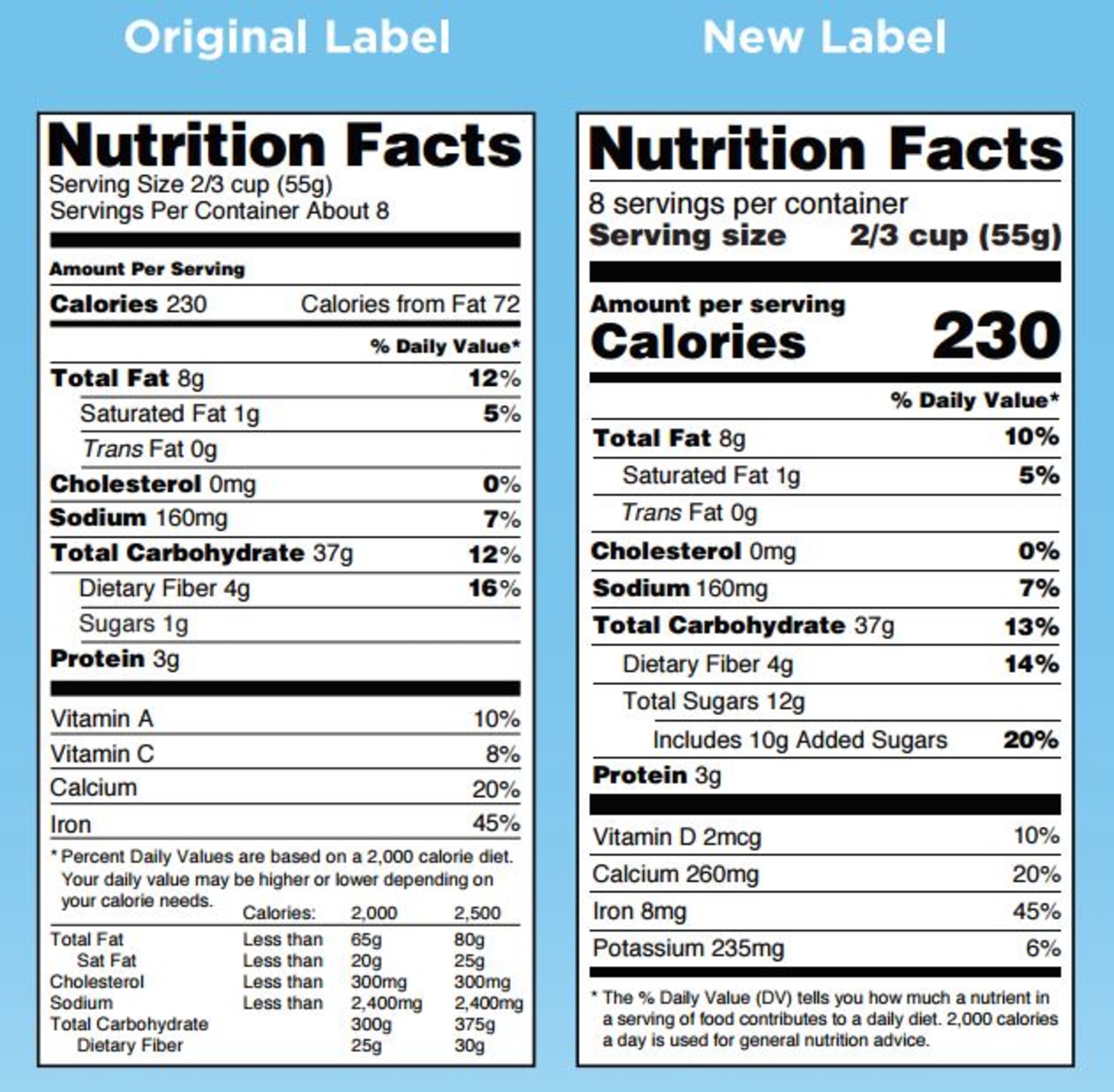


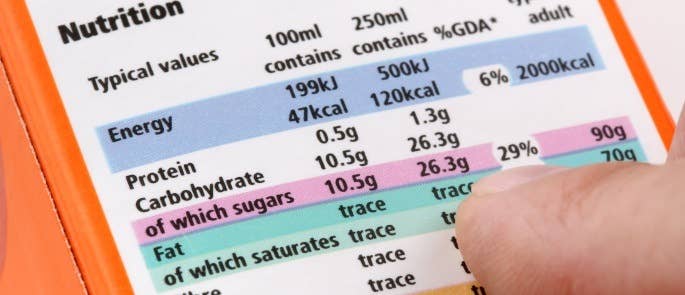

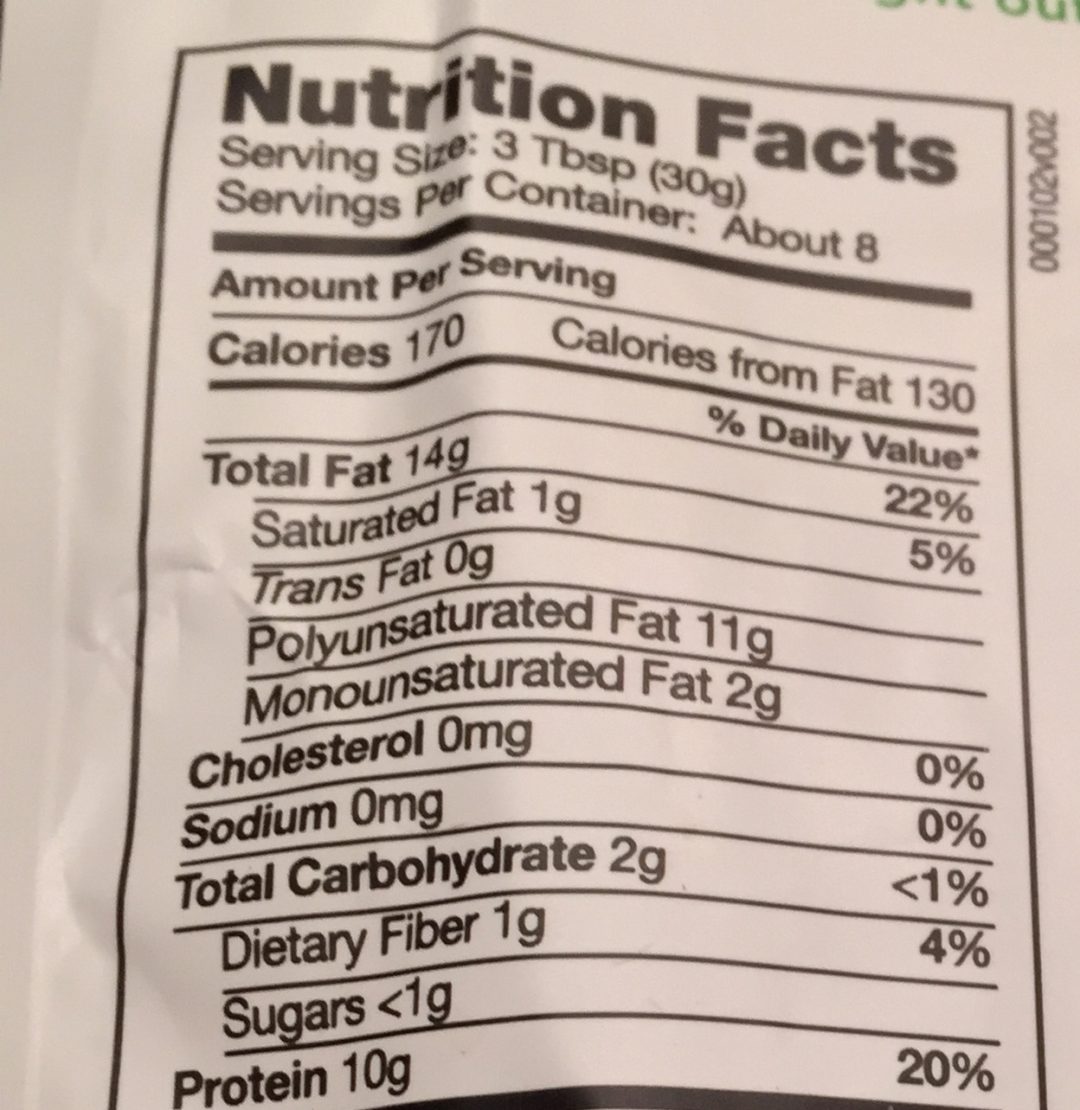


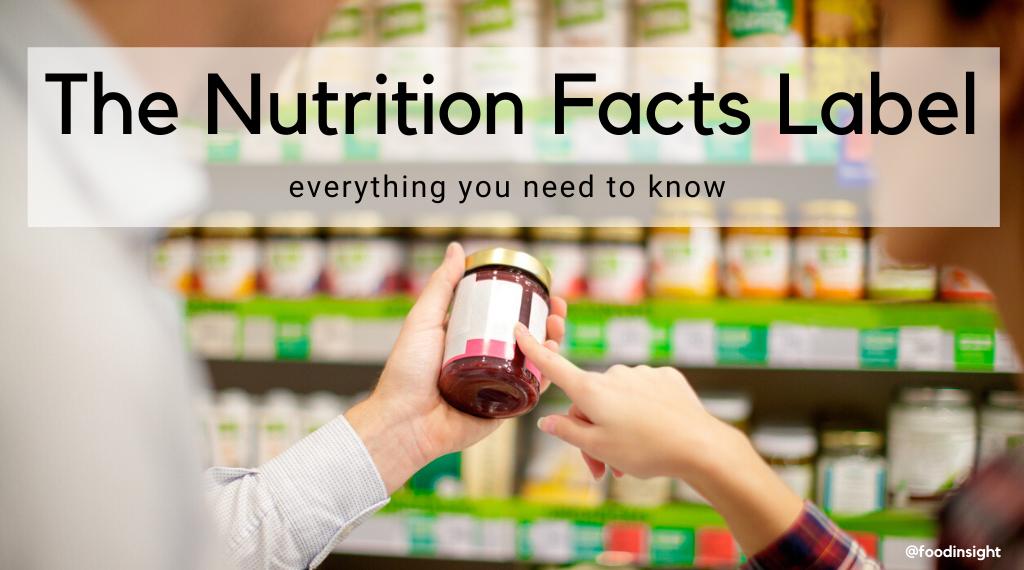
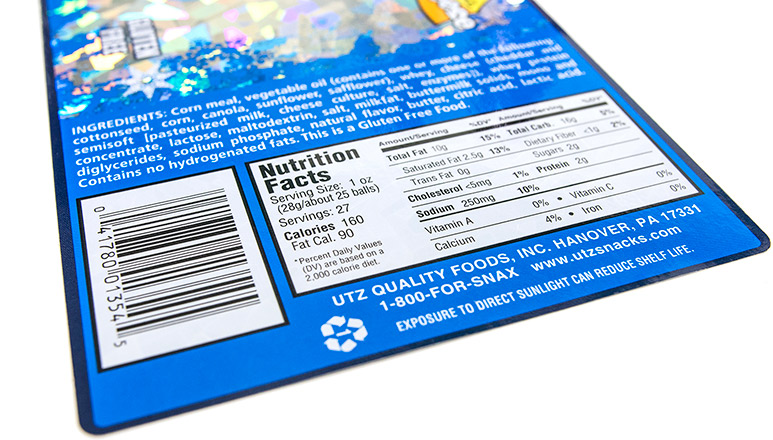
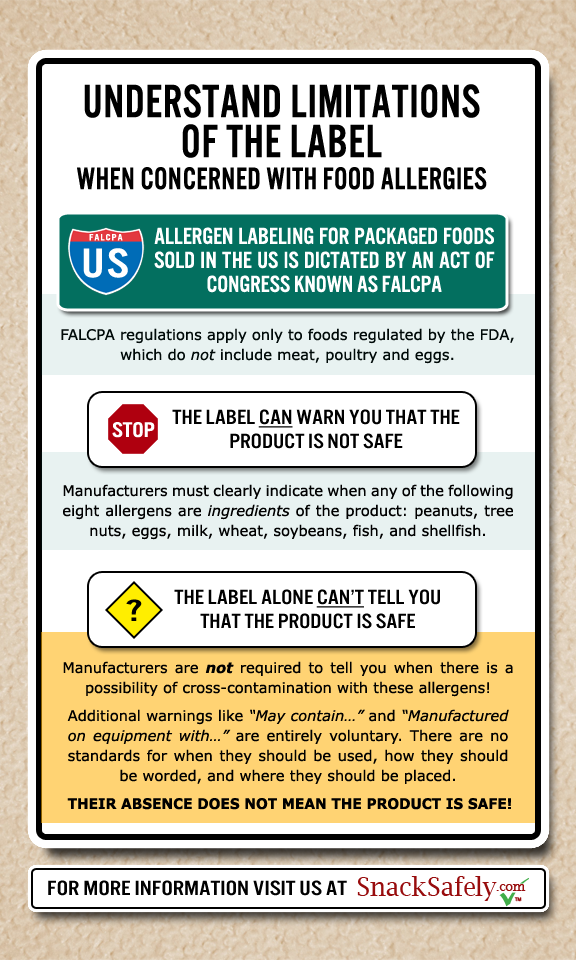



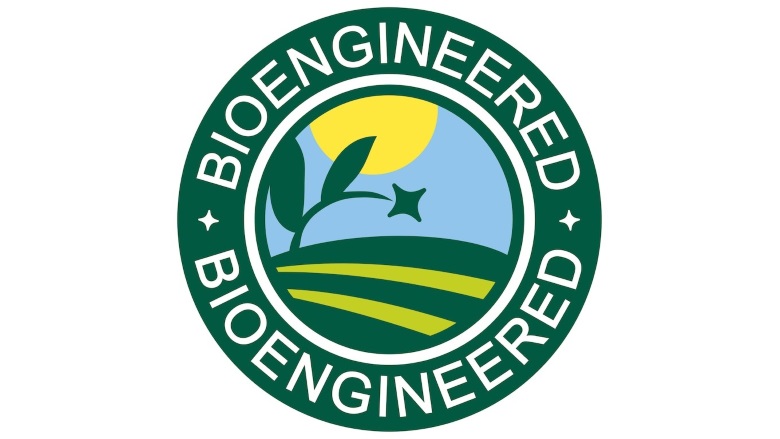
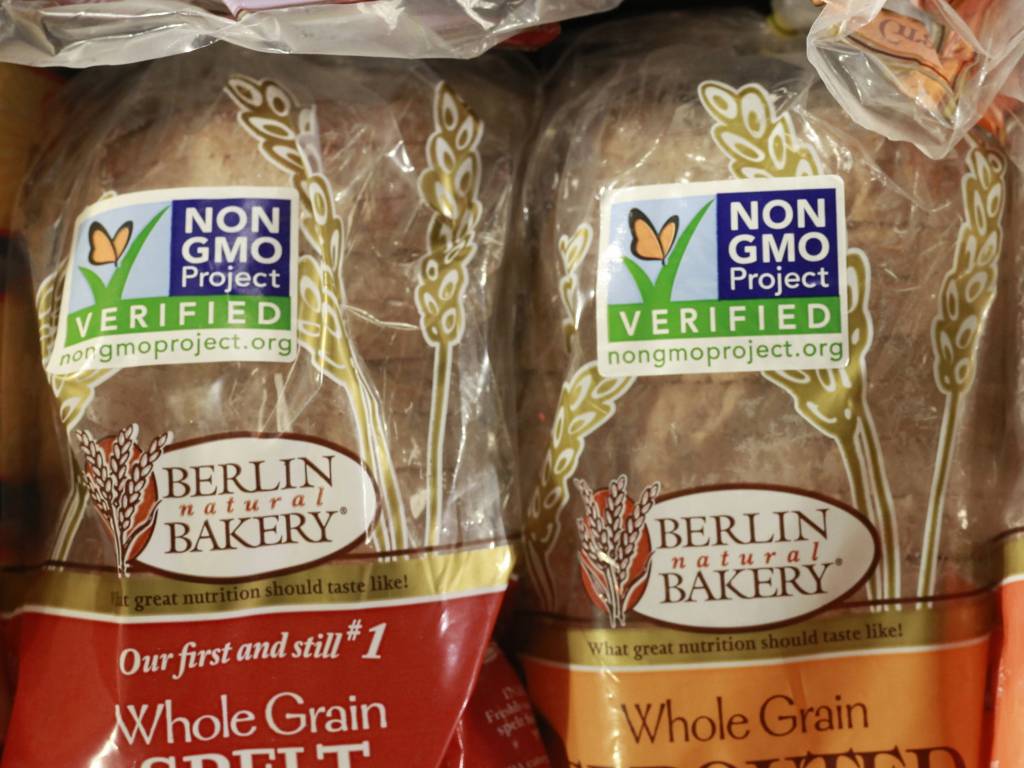
:max_bytes(150000):strip_icc()/GettyImages-1350430166-ffcfb825372249f490fd19ea9cab075e.jpg)

:format(jpeg)/cdn.vox-cdn.com/uploads/chorus_image/image/34604857/3723711696_3be396a802_o.0.jpg)



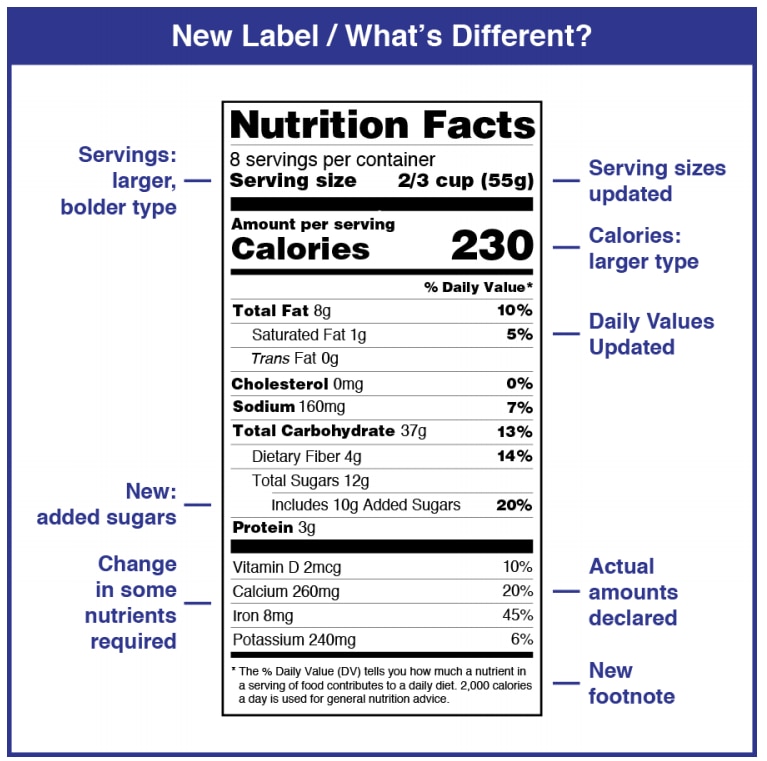



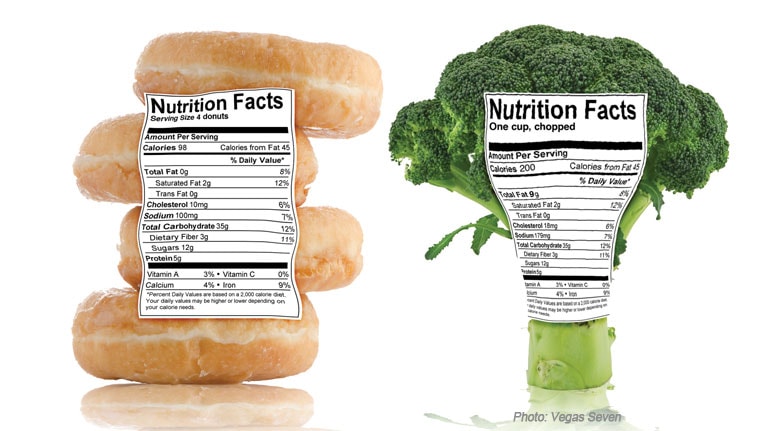
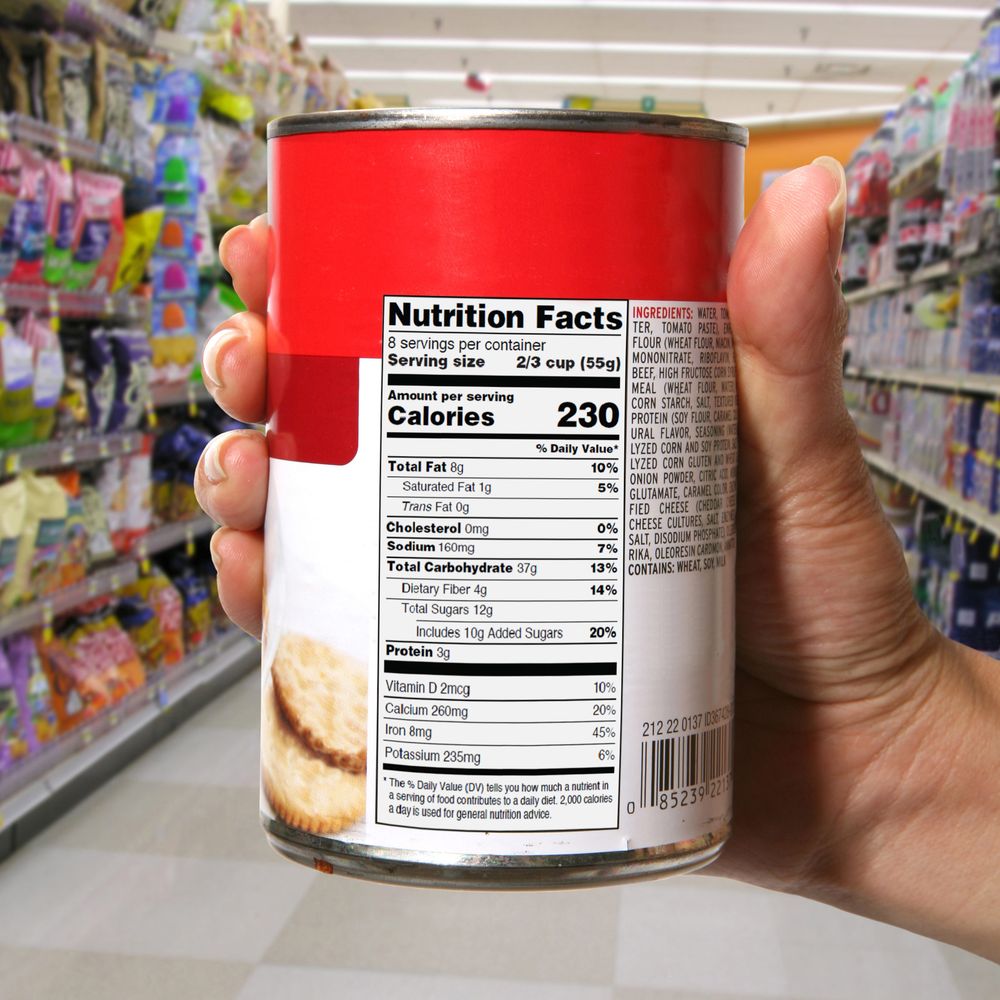

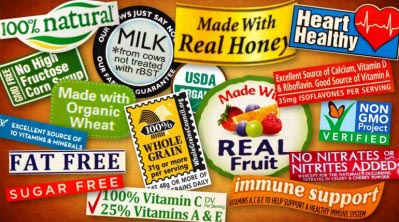
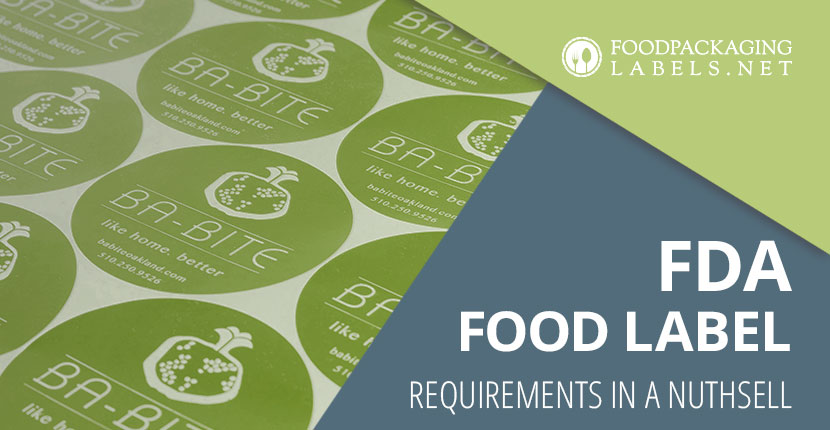
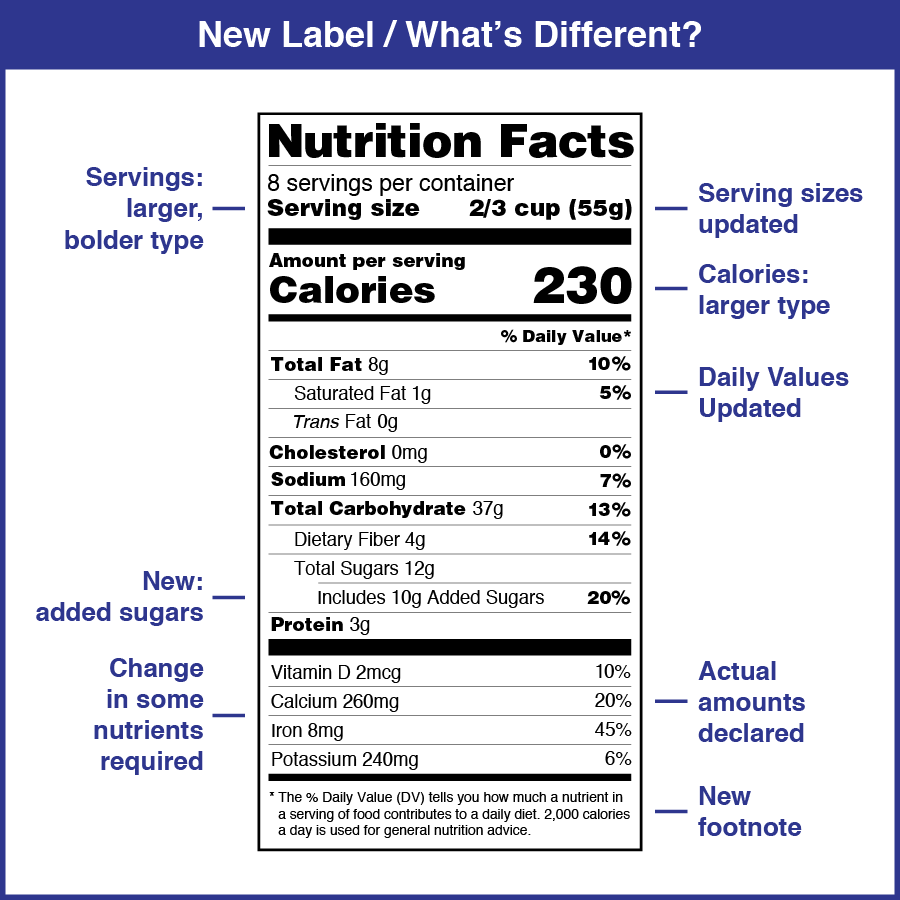




Post a Comment for "40 why food labels are required on some foods"